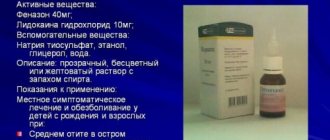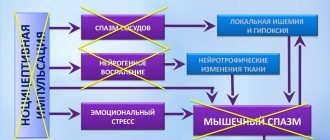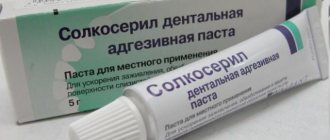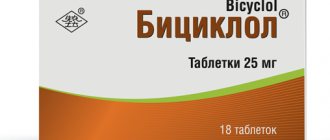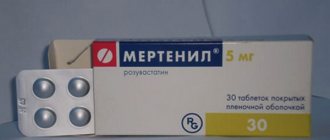For depression, fear or insomnia, doctors often prescribe the drug Amitriptyline to their patients. It is believed that this remedy copes well with various pathological mental states. This medicine is supplied to the market in the form of tablets or solution.
Amitriptyline has earned relatively good reviews from consumers. It really helps with anxiety. However, this remedy still has quite a lot of contraindications. The same goes for side effects. Therefore, some patients, of course, would like to know what modern, more gentle analogues of Amitriptyline are on the market.
Amitriptyline: analogues
06.07.2020 21:19
In case of disorders in the activity of the nervous system, it is necessary to begin timely treatment with the right medicine. To overcome depression, nocturnal enuresis, and neuropathic pain, amitriptyline is used.
This drug has a positive effect on the processes occurring in the brain, as a result of which patients experience improved well-being. If side effects occur during treatment, the doctor may reduce the dosage or choose an amitriptyline analogue.
In what cases should you not take Doxepin and what side effects can it cause?
You can buy this analogue of Amitriptyline without a prescription in many pharmacies. However, you should take it only after consulting a doctor. Doxepin, like many other antidepressants, of course, has contraindications. For example, you should not take this remedy if:
- hypersensitivity to components;
- intoxication of the body of various types, including alcohol;
- breastfeeding;
- presence of liver or kidney failure.
Unfortunately, there are no analogues of Antiriptyline without side effects. During the course, Doxepin can cause, among other things, nausea, problems with urination, drowsiness and weakness. Those patients for whom Doxepin is not suitable at all may experience spasms or uncontrollable shaking of body parts when taking it. Sometimes this drug causes other side effects in patients.
List
Amitriptyline has antidepressant, mild sedative and analgesic effects. Therefore, its spectrum of action is wide enough for the treatment of various types of neuropathic disorders.
To get rid of adverse effects on the body, if there is an allergy to the composition, and also to avoid addiction during long-term treatment, it is necessary to use an amitriptyline analogue.
Here is a list of analogues that are similar in composition and spectrum of action to the drug:
- Doxepin;
- Saroten;
- Amizol;
- Tryptisol;
- Elivel;
- Ludiomil;
- Melipramine;
- Clofranil;
- Fluoxetine;
- Paroxetine.
These are the main analogs that are often used to treat neuropathic disorders. Each of them has its own characteristics of impact on the body and a number of side effects. In order not to harm yourself, it is recommended to consult with your doctor before replacing with an analogue.
Patients' opinions about the drug "Saroten"
The antidepressant effect when taking this medicine, judging by the reviews of patients, is achieved quite quickly. At least in this regard, “Saroten” is not inferior to any of the drugs discussed above, including “Amitriptyline” itself. It relieves depression and panic attacks very well. In addition, as patients note, people who take it usually have improved sleep and increased self-confidence.
Many patients also consider the advantage of this medicine to be that it has been used to treat depression and panic attacks for a very long time. That is, its effect on the psyche and body of patients has been well studied by doctors.
The disadvantages of this medication are usually attributed by patients to its high cost, compared to many other antidepressants. Those who are looking for an analogue of "Anitriptyline" without side effects should definitely pay attention first of all to this drug. It rarely has a negative effect on the patient’s body. In terms of efficiency, it surpasses all analogues discussed above.
As for the disadvantages of this medicine, judging by the reviews, it can still sometimes cause severe constipation and dry mouth. Patients consider some of the disadvantages of Saroten tablets to be that they are very difficult to divide into two and four parts.
Doxepin
One of the analogues of amitriptyline, which, when taken, reduces feelings of anxiety and fear. The analogue also has a mild analgesic and antipruritic effect.
The main active ingredient is doxepin hydrochloride. The medicine is often prescribed for the following types of disorders:
- impairment of cognitive functions;
- manic-depressive state;
- panic attacks, when the patient is haunted by obsessive ideas;
- depression;
- neurotic disorders;
- PMS in women to normalize and stabilize the emotional background.
At the same time, an amitriptyline substitute is not used in cases of cardiac conduction disturbances or intolerance to the components of the drug. It is also not suitable for treating children under 12 years of age. It is not prescribed to pregnant women in the first trimester and nursing mothers.
Start using the analogue at a dosage of 75 mg 2 times a day after meals. Gradually the amount is increased to 300 mg.
Which is better - Doxepin or Anafranil?
Comparing drugs designed to treat mental illness is difficult. The choice of such medications is usually very individual. A medicine that works well for one patient may be completely useless for another. This is why self-medication using such drugs is considered very dangerous.
Be that as it may, both of the Amitriptyline analogues discussed above for depression and anxiety, as can be judged by the reviews about them, can help patients quite well. The only thing is that “Doxepin” is still considered simply a sedative. That is, it is best suited for treating anxiety. "Anafranil" is classified as a balanced action drug. And therefore, its list of indications for use is wider.
Saroten
This drug is an analogue of amitriptyline in composition, since its main active ingredient is amitriptyline hydrochloride.
It is used for the following diseases:
- A severe phase of depressive disorder, when the patient’s behavior is characterized by increased arousal and serious sleep disturbances.
- An amitriptyline substitute treats hallucinations and various manifestations of delusions.
- Pain syndromes at the chronic stage of diseases.
- A medicine based on amitriptyline is indispensable in the treatment of enuresis.
- Manic-depressive psychosis.
An amitriptyline analogue is not used if the patient is allergic to it, there are serious disturbances in the functioning of the cardiovascular system and insufficiency of the coronary arteries. Not suitable for children under 7 years of age, pregnant or breastfeeding women.
Medicine "Novo-Triptin"
Very often, for depression, sleep and behavior disorders, migraines, chronic pain due to oncology, bulimia, doctors prescribe this analogue of Amitriptyline to patients. Its instructions for use are the same as those of Saroten. "Novo-Triptin" is also a synonym for "Amitriptyline". This medicine is supplied to the market in tablets, capsules or in the form of a solution. Its main active ingredient is amitriptyline. In addition to its calming and relaxing effect, this medicine can also have an analgesic effect.
The main contraindications to taking this drug are intoxication, liver and kidney failure, and lactation. This analogue of "Amitriptyline" can be prescribed to children only from 6 years of age.
Among the side effects that the drug “Novo-tryptin” has on the body of patients, based on reviews, we can highlight first of all:
- drowsiness;
- fainting conditions;
- aggressiveness;
- diarrhea.
Amizol
This drug, the active ingredient of which is amitriptyline hydrochloride, has antihistamine, antidepressant and sedative effects. It is available in the form of tablets and injections.
An amitriptyline analogue is used to treat the following types of diseases:
- Depressive disorder in various forms of severity: from mild tension with predominant anxiety to complete impairment of motor and cognitive functions.
- Enuresis, in which at night the bladder does not have time to transmit a signal to the center of the brain. The analogue controls neural processes and stabilizes the situation.
- Violations in behavioral reactions, in which the patient does not respond to the rules and norms of behavior. In such a situation, a person’s actions are characterized by permissiveness.
- In manic-depressive disorders, when the active substance is amitriptyline, it helps to smooth out the manifestation of the periodicity of the patient’s reactions - from excessive obsession with a specific idea to a state of complete indifference to the situation.
Tablets are not used to treat children, patients who have had a heart attack, pregnant or lactating women.
Amitriptyline or Phenazepam
Manufacturer: VALENTA PHARMA, Russia
Release form: tablets, solution for intravenous and intramuscular administration
Active ingredient: bromodihydrochlorophenylbenzodiazepine
Phenazepam is a domestic prescription analogue of Amitriptyline. Belongs to the group of tranquilizers. It has anxiolytic, sedative and hypnotic, anticonvulsant and central muscle relaxant effects. It has an effect on the central nervous system and brain. Helps get rid of anxiety, fear and worry. It is not recommended for patients whose activities require increased concentration. The analogue Phenazepam is capable of exerting direct inhibition of motor nerves and muscle functionality. It is quickly absorbed from the digestive tract, converted in the liver, and administered along with urine.
Phenazepam is prescribed to patients to relieve attacks of anxiety, fear, neurotic and psychopathic conditions, psychosis, autonomic dysfunction, insomnia, emotional stress, as well as increased muscle tone, epilepsy.
Tryptisol
The medicine is based on the main active ingredient - amitriptyline. A product based on amitriptyline has antidepressant, sedative and antihistamine properties.
Amitriptyline-based medicine is used in the following situations:
- With different degrees of severity of the patient’s depressive state. Amitriptyline, which is present in the composition, regulates the level of serotonin, which has a positive effect on the patient’s condition.
- For the treatment of schizophrenia. Amitriptyline helps alleviate the patient's condition during attacks. The drug has a sedative effect, which creates comfortable conditions for the patient.
- For the treatment of behavioral disorders in adolescents and the elderly. If a person’s mental state is characterized by actions in which the patient completely ignores existing norms and stereotypes, complex treatment with the use of amitriptyline is necessary.
- To get rid of enuresis. Urinary incontinence is a mental problem. To eliminate it, it is necessary to regulate the accurate and timely transmission of the signal from the full bladder to the brain. Amitriptyline will help solve the problem.
- For the treatment of anorexia. A situation in which a patient refuses to eat requires the intervention of a psychiatrist. Amitriptyline will help increase and maintain serotonin levels, returning the patient's joy to life.
An analogue created on the basis of amitriptyline is not used to treat children under 6 years of age, pregnant women in the 1st trimester and nursing mothers.
In what cases is it prescribed
Indications for the use of Amitripilin are, for example, diseases such as:
- depression;
- fears and phobias;
- anorexia and bulimia;
- migraine.
Sometimes this remedy is also prescribed for children with enuresis.
This rather strong medicine should be prescribed exclusively by the attending physician. It actually has a lot of side effects. Patients taking the drug "Amitriptyline" often experience:
- impaired focusing of vision;
- constipation and intestinal obstruction;
- lethargy and drowsiness;
- dizziness and low blood pressure;
- tachycardia;
- weakness;
- decreased libido.
Also, people undergoing a course using this remedy may experience fainting.
This drug also has quite a lot of contraindications. For example, it is not prescribed to patients if they have problems such as:
- intestinal obstruction;
- blood diseases;
- glaucoma;
- bladder diseases.
This medicine is prescribed with caution for schizophrenia, bronchial asthma, epilepsy and some other diseases.
Elivel
This analogue has a similar spectrum of effects on the body, since it is based on amitriptyline. It is produced in the form of tablets, dragees, and capsules. The analogue has antidepressant and analgesic properties.
An amitriptyline substitute is taken in a dosage of 25–50 mg at bedtime. Gradually, the amount of the amitriptyline-based drug used is increased to 200 mg, which is divided into three doses per day. If this amount of amitriptyline is not enough to control the disease, your doctor may increase it to 300 mg per day. This usually occurs 2 weeks after the start of treatment.
The analogue is not prescribed in the following cases:
- In case of myocardial conduction disorders;
- pregnancy and breastfeeding;
- glaucoma;
- allergies to the composition;
- alcohol intoxication;
- with myocardial conduction disorders.
Amitriptyline-based medication is used with caution for cardiovascular diseases, epilepsy, chronic alcoholism, and bronchial asthma.
What is the drug "Doxepin"
This analogue of “Amitriptyline” is prescribed to patients in the following cases:
- for depression, including MDP;
- excitement and anxiety;
- hypochondria.
This medicine can also be used for panic disorders or sleep disorders. The drug can be prescribed to children only from 12 years of age. This medicine is supplied to the market in the form of tablets.
Ludiomil
The medicine is produced in the form of coated tablets. The main active ingredient is matroptyline hydrochloride. The drug has a similar spectrum of effects on the body with amitriptyline.
It is prescribed for the following diseases:
- depression of various origins;
- psychosomatic disorders;
- dystrophy;
- syndrome of increased anxiety and apathy.
The drug is used with caution to treat children, pregnant and lactating women. The maximum daily dosage for an adult is 150 mg. Children and the elderly are prescribed 10 mg of the drug 3 times a day.
Melipramine
The medicine is available in the form of tablets and solution for injection. The main active ingredient of the drug is imipramine hydrochloride. The medicine has an antidepressant effect. The sedative effect is less compared to amitriptyline.
Melipramine is used to treat the following diseases:
- depression;
- psychopathy;
- childhood enuresis;
- severe pain syndrome due to cancer;
- migraines, neuralgia, bulimia;
- panic attacks.
The drug should not be used to treat children under 6 years of age, pregnant or lactating women. Take melipramine tablets after meals in a dosage of 25–50 mg per day with a gradual increase to 250 mg.
Analogues in composition
Similar medications to Amitriptyline are medications that have an identical structural composition, but may differ in the dosage of amitriptyline in tablets or injection solutions.
Saroten
Sarotene is an antidepressant with the main component – amitriptyline hydrochloride. Saroten is produced in tablets and is prescribed for:
- severe phase of the development of depression with anxiety, overexcitation and sleep disturbances;
- depression in schizophrenia, with paranoid and suicidal thoughts;
- exacerbation of hallucinations and delusions;
- manic-depressive psychosis;
- pain syndrome of the chronic stage;
- enuresis of neurological origin.
The drug is not prescribed for:
- allergies to the medicinal composition;
- heart blockades and various types of arrhythmias;
- insufficiency of the coronary arteries;
- therapy with MAO inhibitors.
Also, the medicine is not prescribed in pediatrics to children under 7 years of age, during pregnancy and lactation.
The medication can be used only according to individual dosages established by the doctor. Doses are prescribed based on pathology:
- depression - 25 mg three times a day, followed by a gradual increase every 2 days to a dose of 150 mg per day (in a hospital setting, increase to 225-300 mg);
- therapy of childhood enuresis: 7-12 years – 25 mg, 12-18 mg – 50 mg. The tablets are taken half an hour before bedtime.
Patients with impaired functioning of the kidneys, liver and heart do not need dose adjustment.
Adverse reactions:
- dizziness and headache;
- tremors of the limbs and impaired coordination;
- dyspepsia with severe constipation;
- lethargy;
- symptoms of depression;
- skin allergies.
Amizol
Amizole is an antidepressant and antihistamine medication with sedative properties. The main component in the medicine is amitriptyline hydrochloride. The medicine is produced in tablets and solution for injections. Amizol is prescribed in the treatment of:
- depression;
- manic and depressive disorders;
- behavioral disorders;
- emotional overstrain;
- enuresis.
Do not prescribe tablets if you are sensitive to the ingredients, after a heart attack, in pediatrics, and during pregnancy and breastfeeding.
Prescribed parenterally (3 injections per day) - 75-100 mg. Therapy for childhood enuresis: 3-6 years old - 10 mg, 6-10 years old - 10-20 mg, 10-16 years old - 25-50 mg. The tablets are taken 60 minutes before bedtime.
Side effects:
- dizziness, weakness and insomnia;
- anorexia and dyspepsia;
- skin rashes and itching;
- disturbances in heart rhythm and decreased blood pressure;
- tremor and unsteadiness of gait.
Amirol
Amirol is an amitriptyline-based antidepressant. The drug has an anticonvulsant and antihistamine effect. Amirol is produced in tablets and is prescribed for:
- depression of endogenous origin;
- enuresis.
Amirol is not prescribed for:
- sensitivity to the drug composition;
- disturbances in myocardial rhythm;
- manias and phobias;
- liver dysfunction.
Not prescribed for children under 6 years of age, women during pregnancy and breastfeeding.
The medicine is prescribed once a day at a dose of 75 mg. If the pathology develops severely, you can take an additional dose in the evening. Dosages used in the hospital are 200-300 mg. The average therapeutic course lasts 3 months.
Negative actions:
- dyspepsia, dry mouth and anorexia;
- disturbances in urination and sexual function;
- decreased quality of vision;
- hypotension and arrhythmia;
- leukopenia;
- tremors of arms and legs, fainting;
- hepatitis;
- skin pathologies - hemorrhages, purpura, urticaria.
Tryptisol
Tryptisol is an antidepressant drug with antihistamine and sedative properties with the main ingredient amitriptyline. The drug is manufactured in tablet and parenteral forms and is used for:
- depressive syndrome;
- endogenous depression;
- psychosis;
- schizophrenia;
- anxiety-depressive syndrome;
- behavioral disorders in adolescence and old age;
- anorexia of psychogenic origin;
- neurogenic etiology of pain;
- childhood enuresis.
Tryptisol is not prescribed for:
- allergies to medicinal composition;
- glaucoma;
- prostate adenoma;
- epileptic seizures;
- intestinal obstruction;
- atony of the bladder.
It is also not used in the treatment of children under 6 years of age, in the 1st and 3rd trimester of pregnancy, as well as during lactation.
The tablets should be taken immediately after eating. The initial dosage is 25-50 mg, increasing over 5-6 days to 150-200 mg. Take the tablets three times a day.
Negative effects:
- dry mouth;
- retention of urine in the body;
- cardiac arrhythmia;
- increased sweating;
- dizziness and blood pressure fluctuations;
- drowsiness;
- tremor and lethargy;
- dermatological reactions - purpura, hemorrhages, itching and urticaria.
Elivel
Elivel is an antidepressant that is manufactured in several dosage forms - dragees, tablets, solution for intramuscular administration, and capsules with the main ingredient - amitriptyline. Elivel is intended for the treatment of:
- depressions of various origins;
- alcohol withdrawal;
- anxiety and agitation syndrome;
- psychosis in schizophrenia;
- nocturnal enuresis;
- emotional disorder of mixed type;
- bulimia of nervous etiology;
- rheumatic pathologies;
- pain syndromes in oncology;
- disturbances in emotional and behavioral state;
- neuralgia, neuropathy, migraine pain;
- ulcerative lesions in the gastrointestinal tract.
The drug is not prescribed for;
- allergies to the composition;
- intoxication with ethanol, medications;
- glaucoma;
- myocardial conduction disorders;
- GW and pregnancy.
Use with restrictions for:
- alcoholism;
- bronchial asthma;
- disorders in hemostasis;
- vascular and cardiac diseases;
- stroke;
- kidney and liver dysfunction;
- thyrotoxicosis;
- prostate hyperplasia;
- epileptic seizures.
The initial dosage of tablets is prescribed at bedtime at a dosage of 25-50 mg with a gradual increase in the dose (5-6 days) to 150-200 mg with three times a day. After 2 weeks of therapy, the doctor may increase the dose to 300 mg.
For parenteral administration, a dosage of 20-40 mg is prescribed four times a day.
Side effects:
- arrhythmia;
- mydriasis;
- impaired quality of vision;
- hallucinations;
- dyspepsia and constipation;
- depression, asthenia and insomnia;
- decreased blood pressure and dizziness;
- disturbances in hemostasis;
- skin itching, rash and urticaria.
Clofranil
This drug is similar in its spectrum of actions. It is produced in the form of tablets, the main active ingredient of which is clomipramine chloride.
The medicine is prescribed to patients suffering from the following diseases:
- Obsessive-compulsive disorder, in which the patient's condition is characterized by emotional poverty and a desire for perfection in behavior. Creative approach and originality disappear, they are replaced by mechanical action and alignment with authority.
- Depression, in various forms of which a person loses joy in life.
- Panic attacks and paranoia, accompanied by increased anxiety syndrome.
- Schizophrenia to stabilize the state of behavior.
- Nocturnal enuresis in children and adolescents.
Start using the drug with one tablet per day. Gradually the amount is increased to 4 - 6 pieces, divided into several daily doses. The doctor will tell you a detailed treatment plan, based on the clinical picture of your health condition.
Reviews about the drug "Anafranil"
Many patients note the fact that this medicine for depression and fears helped them very well. It has a positive effect on some patients even in cases where other similar remedies remain powerless. According to patients, Anafranil helps very well both with panic attacks and with various types of depression.
There are excellent reviews about the Amitriptyline analogue Anafranil on the Internet also because this medicine is practically non-addictive. But, according to people who have ever taken it, the dosage of this drug should be reduced smoothly and gradually. The rather serious disadvantages of this drug that patients attribute mainly to the fact that in the first days of taking it it often causes dizziness.
Fluoxetine
This is a medicine from the group of serotonin uptake inhibitors. Has an antidepressant effect on the body. In this case, the main active ingredient is a component with the same name - fluoxetine.
The medicine is used to treat the following diseases:
- Depression;
- Acute coronary syndrome;
- Neuroses and bulimia.
Start taking it with a dosage of 20 mg once a day. It is gradually increased to 40–60 mg, divided into several doses.
Fluoxetine is not used to treat children, pregnant or lactating women. The medicine is not used in patients who are allergic to any of the components of the drug.
Amitriptyline substitutes with similar therapeutic effect
On the pharmacological market there are similar medications to Amitriptyline, which have a different structural composition, but the same therapeutic direction.
Clofranil
Clofranil is a tricyclic antidepressant drug containing clomipramine hydrochloride. The medicine is prepared in tablets and prescribed for:
- depression of various etiologies, which are accompanied by psychopathy and somatic pathologies;
- schizophrenia;
- obsessive-compulsive and pain syndrome;
- panic attacks, phobias and paranoia;
- cataplexy.
In childhood and adolescence it is prescribed for:
- OKS;
- enuresis in children after 5 years.
During pregnancy and lactation, it is prohibited to use Clofranil, and it is also prohibited to prescribe it for:
- sensitivity to ingredients;
- treatment with monoamine oxidase inhibitors;
- glaucoma;
- prostatitis.
Prescribed with restrictions for:
- brain pathologies;
- convulsions;
- insufficient conductivity within the myocardium;
- alcoholism;
- oncology in the adrenal glands;
- inhibition of bone marrow hematopoiesis.
Prescribe 1 tablet per day, followed by an increase to 4-6 tablets in 3 divided doses. After normalization of the condition, the dosage is reduced to 2-3 tablets as maintenance treatment.
Side effects:
- dyspepsia and stomatitis;
- loss of appetite and anorexia;
- arrhythmia, tachycardia and fluctuations in blood pressure index;
- mydriasis;
- blurred vision;
- paranoia, delusions, hallucinations;
- impotence;
- agranulocytosis;
- hyperemia, itchy skin and urticaria.
Fluoxetine
Fluoxetine is manufactured in gelatin capsules with the active ingredient - fluoxetine. Fluoxetine is an antidepressant from the serotonin uptake inhibitor group.
Medicine is prescribed for:
- depressions of different origins;
- OKS;
- bulimia and neuroses.
It is prohibited to use the medication when:
- allergies to ingredients in the composition;
- therapy with thioridazine and monoamine oxidase inhibitors;
- kidney/liver failure;
- lactose intolerance.
The drug is not used in pediatrics, pregnancy and breastfeeding.
Capsules must be taken orally. The initial dose is 20 mg once a day. If necessary, the doctor increases the dosage to 40-60 mg in 2-3 doses. The daily allowable intake of the drug is 80 mg.
Side symptoms:
- impotence and urine retention in the body;
- tachycardia, arrhythmia and hypertension;
- dyspepsia;
- hallucinations, delusions, phobias and confusion;
- dermatological rash and itching.
Paroxetine
Paroxetine is an antidepressant drug that is produced in tablets with the main component - paroxetine. It is used for:
- OKS;
- panic disorders;
- various etiologies of depressions;
- post-traumatic stress;
- phobias;
- feelings of anxiety.
The medication is not used in pediatrics and in case of allergies to the composition of the drug, as well as in therapy with monoamine oxidase inhibitors and in the treatment of pregnant and lactating women. The tablets are taken once a day. Dosages are selected and adjusted by the doctor based on pathologies. Standard doses according to disorders:
- depression – 20 mg, with a gradual increase to 50 mg;
- OKS – 20 mg with increasing dosage to 40-60 mg;
- panic attacks – 10 mg, increasing to 40-50 mg;
- anxiety syndrome – 20 mg.
Negative symptoms:
- increased irritability and nervousness;
- impotence;
- euphoria, hallucinations and delusions;
- arthralgia and muscle rigidity;
- dyspepsia and hepatitis;
- blood pressure fluctuations and arrhythmia;
- urticaria, itching and Quincke's edema.
See also:
TOP 12 cheap analogues of Theraflu - Russian substitutes for the drug in tablets and powder
Paroxetine
This is an antidepressant medicine whose main active ingredient is paroxetine. The medicine is released in the form of tablets.
Used for the following diseases:
- Stress;
- Phobias;
- Increased anxiety;
- Depression;
- Acute coronary syndrome.
The medicine is not used to treat children, nursing and pregnant women, as well as for persons who are allergic to it.
Start taking a 20 mg tablet once a day. Gradually the amount is increased to 50 mg, divided into several daily doses.
Sometimes patients experience side symptoms, which manifest themselves in the form of sexual impotence, hallucinations, a state of euphoria, surges in blood pressure and other reactions. If the patient's condition worsens, the doctor may replace the drug with another one.
Cheap
Amitriptyline is a modern, inexpensive drug with antidepressant properties that is used to treat various types of neuropathic disorders. In addition to the minimal side effects, buyers are also pleased with the price of the medicine. Amitriptyline can be bought at a pharmacy at a price from 30 to 100 rubles.
There are other cheap drugs similar to it:
- Tryptisol costs between 50 and 70 rubles;
- Fluoxetine is more expensive - its cost is approximately 150 rubles.
The price range for amizole remains in the range from 115 to 140 rubles.
Over the counter
Amitriptyline and its analogs are available from pharmacies with a prescription. But taking into account recent changes in legislation, you can also buy medicine through the website of an online pharmacy in order to minimize contact with others.
Here is the basic procedure when purchasing amitriptyline:
- To do this, just go to the website and select the medicine that is needed. When ordering, it is important to correctly and accurately indicate the address so that the courier can deliver the purchase.
- After this, the pharmacy employee will bring the drug to the place indicated in the order and inform the buyer about the delivery.
In this case, when ordering, it is important to use the medicine as recommended by your doctor so as not to harm yourself.
Cost of Amitriptyline and its analogues
The drug is in the low price segment. Also, its domestically produced analogues have a budget price. Foreign generics of Amitriptyline and its therapeutic substitutes are several times more expensive than Russian medicines.
| Name of medicine | Dosage of the main component in mg | Number of units per package | average cost |
| Amitriptyline | 25 10 | 50 2 ml/10 | 31-79 54-93 |
| Saroten | 25 | 100 | 512-524 |
| Anafranil | 25 | 30 | 314-328 |
| Doxepin | 50 | 30 | 500-515 |
| Amizol | 25 | 30 | 115-156 |
| Amirol | 10 | 50 | 170-197 |
| Tryptisol | 25 | 20 | 56-65 |
| Elivel | 10 | 100 | 268-287 |
| Ludiomil | 10 25 | 50 30 | 650-664 769-780 |
| Melipramine | 25 | 50 | 350-365 |
| Clofranil | 25 | 50 | 226-273 |
| Fluoxetine | 20 | 20 | 132-148 |
| Paroxetine | 20 | 30 | 292-327 |
[compare name=`Anafranil|Doxepin|Saroten|Amizole|Amirol|Triptisol|Elivel|Lyudiomil|Melipramine|Clofranil|Fluoxetine|Paroxetine`]
See also:
TOP 9 analogues of Mirtazapine - substitutes from the group of antidepressants
Modern, no side effects
The range of side effects of amitriptyline is small. For this reason, when prescribing treatment, doctors are increasingly opting for it.
For most drugs with similar properties, the list of body reactions is approximately the same:
- headaches and dizziness;
- confusion;
- dry mouth;
- surges in blood pressure.
Sometimes patients experience allergic reactions associated with intolerance to drugs in this category.
Reviews of the product "Amitriptyline"
Patients consider the advantage of this drug, first of all, of course, to be that it helps very well with various types of mental disorders. Many consider this medicine to be perhaps the most powerful antidepressant today. Also, the advantages of this drug include its relatively low cost.
The disadvantages of Amitriptyline are:
- possibility of quick adaptation;
- decrease in blood pressure;
- severe drowsiness;
- dry mouth.
It is precisely because of the ability to have so many side effects that Amitriptyline has received not very good reviews from patients. The instructions for analogues of this medicine are usually similar, but in many cases they still act on the patient’s body much more gently than this powerful medicine.
Also, the disadvantage of this drug, many people who have ever taken it, believe that it has a narcotic effect on patients. “Amitriptyline” has also earned not very good reviews for its ability to cause a simply brutal appetite in patients undergoing treatment with its use.
What's better?
Amitriptyline and its analogues in composition and spectrum of action help patients in the fight against depressive conditions and neuropathic diseases.
Which drug is better - the answer to this question depends on the clinical picture of the patient’s condition and the body’s reaction to the components of the composition. Amitriptyline is inexpensive and has minimal side effects, which is why psychiatrists prescribe it more often than usual.
At the same time, if the patient has negative body reactions to the use of amitriptyline, it is reasonable to use its analogues, which are recommended by the doctor.
It is also possible to use analogues during a long course of treatment, so as not to provoke addiction.
Reviews of the analogue of “Amitriptyline” “Doxepin”
Patients also consider this drug to be quite effective. It is especially good, according to patients, in helping against depression. The advantages of this medicine include its low cost. Judging by the reviews, this drug begins to help about two weeks after starting treatment.
The disadvantages of the modern analogue of "Amitriptyline" "Doxepin" patients include the fact that at first it usually causes severe drowsiness. Also, after stopping taking this medicine, as many people who have been treated with it note, a withdrawal effect that is not too strong, but still, may be observed. It usually manifests itself with fluctuations in blood pressure.
This drug has relatively many side effects. Therefore, it is still worth changing “Amitriptyline” to it only if the latter is contraindicated for some reason, does not help, or has too much of a negative effect on the patient’s body.
Prices
Prices for drugs with amitriptyline vary from 50 rubles to 800 rubles. The cost of the medicine largely depends on the manufacturer: foreign options are more expensive.
Here are the main average prices for medicines in pharmacies:
- You can buy amitriptyline and tryptisol for less than 100 rubles.
- Fluoxetine, paroxetine, Elivel and Amirol cost from 100 to 300 rubles.
- Saroten and doxepin cost just over 500 rubles.
There are substitutes for amitriptyline that are more expensive - Ludiomil costs more than 700 rubles.
Indications for use
Amitriptyline is a drug that has antidepressant, analgesic and sedative effects. In terms of its spectrum of action and composition, it has a sufficient number of analogues, which, like amitriptyline, are used to treat the following diseases:
- depressive disorders;
- enuresis;
- bulimia;
- migraines;
- increased anxiety syndrome;
- insomnia arising from pathological conditions.
Amitriptyline is not used to treat children under 6 years of age, pregnant or lactating women. It is also not prescribed to patients with alcohol intoxication, people who are allergic to the components of the drug and its analogues. Not used for the treatment of persons with acute disorders of cardiovascular activity, glaucoma.
Contraindications and side effects of the drug "Melipramin"
For children, this medicine can only be prescribed from the age of 6 years. Contraindications to the use of the drug "Melipramin" are:
- intoxication;
- heart diseases;
- lactation period.
Elderly people, as well as patients with schizophrenia, should prescribe this drug with caution.
Side effects of Melipramine can cause the following:
- increased intraocular pressure;
- drowsiness;
- hand tremors;
- paralytic ileus;
- problems with urination.
With long-term use, this drug can also cause such an unpleasant effect as accelerated development of dental caries.
Reviews
- Gennady Sviridov, psychiatrist
For the treatment of depressive conditions, I prescribe amitriptyline to patients as monotherapy and as part of complex therapy. This is an inexpensive, domestically produced medicine that has a powerful antidepressant and sedative effect. In cases where amitriptyline needs to be replaced to avoid addiction, I use its analogues: sarotene and doxepin. They have a minimum number of side effects and are low in cost.
- Anna, 55 years old
With the onset of menopause, I encountered a condition called menopausal depression. I went to the doctor and he prescribed me amitriptyline. I took the medicine for 2 weeks, one tablet 3 times a day. At first I felt a little dizzy, but then it went away. Amitriptyline helped me stabilize my mental state.
- Elena, 27 years old
The child had nocturnal enuresis. We tried to get rid of the disease using traditional methods - waking up at night, diet - nothing helped. We contacted a neurologist. The doctor prescribed melipramine. After a course of complex therapy, which also included physiotherapeutic procedures, the child felt better. Gradually we got rid of the problem completely.
Amitriptyline or Fluoxetine
Manufacturer: OZON, Russia
Release form: capsules, tablets
Active ingredient: fluoxetine hydrochloride
Fluoxetine is a domestic antidepressant that can replace Amitriptyline. Helps cope with attacks of fear, tension, dysphoria. Does not have a sedative effect. Does not affect the functionality of the cardiovascular system.
The analogue Fluoxetine is prescribed for depression, obsessive-compulsive disorders, and bulimic neurosis. It is recommended to take according to the instructions or prescriptions of a specialist.



